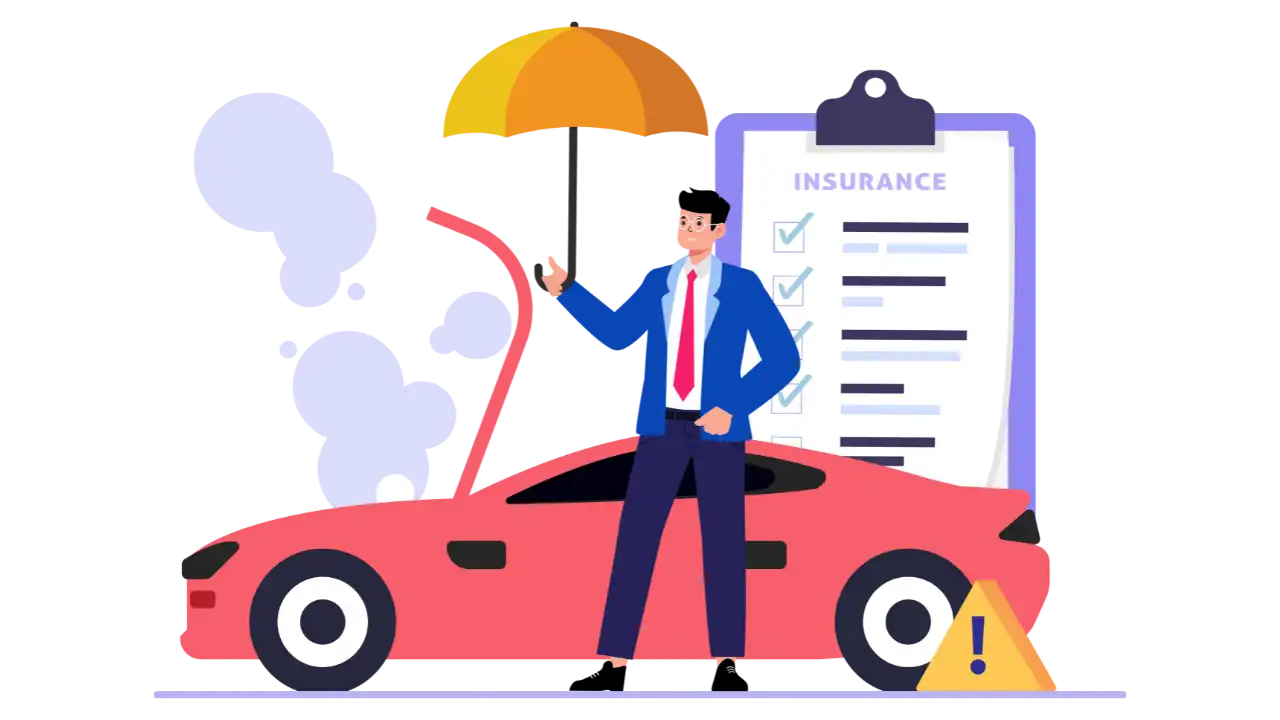Commercial Box Truck Insurance
Get affordable commercial box truck insurance to protect your business from accidents, theft, and liabilities. Compare quotes and secure coverage fast to stay compliant and avoid financial risks.
Choose the right coverage from trusted insurance providers.































Why Is Insurance Essential for Box Trucks?

Box truck operators face many risks, from auto accidents to trucking accidents that can cause bodily injuries and property damage. Having commercial box truck insurance helps businesses comply with state laws and meet contract terms required by clients.
This coverage protects against financial loss from injuries, theft, and unexpected events, ensuring smooth operations for trucking businesses.
What Insurance Coverage Is Necessary for Box Trucks?
These policies help protect box truck operators from common risks on the road and at work.
Business owner’s policy
Most box truck companies choose a BOP as a cost-effective solution to buy both general liability coverage and commercial property insurance together. It protects against liability lawsuits and property damage, ensuring financial security.
Under this plan
Accidents that harm clients
Stolen or damaged business property
Business interruption insurance
Errors and omissions insurance
Also known as professional liability insurance, E&O insurance covers the legal expenses related to lawsuits arising from unsatisfactory work performance or negligence. It helps protect businesses from financial losses due to mistakes or missed deadlines.
Under this plan
Performance errors
Accusations of negligence
Failure to complete a job on time
Commercial auto insurance
An auto insurance policy is essential as it pays for property damage and medical bills in the event of an accident involving a business-owned vehicle. It is often required for trucking businesses in almost all states to ensure financial security.
Under this plan
Vandalism and Theft
Weather damage
Accidents involving trucks
Cyber insurance
A policy that helps box truck drivers recover financially from cyberattacks and data breaches can be essential for protecting their business. Sometimes called cyber liability insurance or cybersecurity insurance, it ensures financial support in case of digital threats.
Under this plan
Ransomware attacks
Data breach investigations
Customer notification costs
General liability insurance
A policy that protects against third-party claims, box truck drivers face various risks, including customer bodily injury and property damage. Since accidents can happen anytime, this is often the first insurance policy a driver purchases to avoid costly lawsuits.
Under this plan
Slip-and-fall accidents
Damaged customer property
Libel and slander lawsuits
Worker’s compensation insurance
Many states require workers’ comp for commercial trucking businesses with employees to handle workplace risks. This insurance covers work-related medical bills for both employees and sole proprietors, especially when personal health insurance may deny coverage.
Under this plan
Employee medical expenses
Disability benefits
Lawsuits from employee injuries
What Does Insurance for a Box Truck Cover?

Having the right coverage for box trucks is crucial for business protection. A commercial auto insurance policy includes standard protections, but truck-specific coverages can be added based on availability and requirements, which vary by state. Business owners should consider different options to ensure full protection.
- Liability insurance coverage: Helps cover claims for property damage or bodily injury if employees are in an accident while using a company vehicle for business purposes.
- Collision coverage: A type of physical damage coverage that pays for repairs or replacement costs if the truck hits another car or a pole.
- Comprehensive coverage: Covers the cost of damages due to theft, fire, or natural disasters.
- Medical payments coverage: Helps pay medical bills for passengers in the event of an accident, including medical treatments, rehabilitation, dental care, and funerals.
- Uninsured / Underinsured motorist coverage: Covers medical expenses and costs to fix the truck if a driver with lacks or no liability coverage is involved in an accident.
Types of Box Trucks Covered
This insurance applies to more than just traditional box trucks. It also covers:
Straight trucks
Tilt cabs
Flatbed trucks
For complete protection, business owners should review their options and ensure they have the right policy in place.
How much does box truck insurance cost?
Insurance companies use underwriting to determine the commercial insurance rate for a box truck business. They evaluate the number of vehicles you own, the type of cargo you carry, claims history, and employee driving records.
Key Cost Factors:
- Number of vehicles and their usage
- Type of cargo and risk level
- Past claims history
- Employee driving records and safety track record
- Selected types of coverage, coverage limits, and deductibles
A higher coverage limit provides better protection but raises costs, while a higher deductible can lower premiums.
How do I get box truck insurance?
Getting insurance for your box truck is easy if you have the right business details prepared. Follow these steps to secure the best coverage options:
- Fill out an application with your annual revenue, payroll, employees, and driving history.
- Get free quotes from top-rated U.S. insurance companies and compare different plans.
- Choose the right policy, pay online, and instantly download your certificate of insurance for proof of insurance.
Whether you are a single owner operator or manage a fleet of trucks, licensed insurance agents can guide you in finding the right trucking insurance needs for your business operations. With Eagle Nation, you can easily complete everything online and get insured quickly.

Types of Box Trucks and Straight Trucks
Box trucks have different names based on cargo type and business use. Eagle Nation Insure various types of box and straight trucks, including:
- Cargo cutaway – For deliveries and services.
- Icebox – For frozen goods.
- Moving truck – For relocations.
- Reefer truck – For refrigerated transport.
- Sleeper box – With sleeping space for drivers.
- Tilt cab – With tilting cab for engine access.
Get a box truck insurance quote online or talk to an agent to learn more about your options.
Typical Box Truck Insurance Coverage
Box truck insurance is essential protection for operations, and coverage needs depend on whether you carry your own products or work as a for-hire trucker.
Private Carriers
- Private carriers who deliver goods need basic liability insurance to cover injuries, damage, and accidents.
- Physical damage insurance protects the vehicle if it gets damaged.
For-Hire Truckers
- Motor carriers provide liability insurance, but for-hire truckers may still need certain coverages.
- Motor truck cargo insurance protects goods from fire and collision while being hauled.
- Non-trucking liability insurance covers the truck when not under dispatch.
Additional Coverages
- Uninsured/underinsured motorist (UM/UIM) insurance helps if an at-fault driver has insufficient coverage for injuries or property damage.
- Medical payments (MedPay) ensure driver protection by covering passengers’ expenses.
- Comprehensive insurance covers non-collision events like theft, vandalism, hail, and natural disasters.
Collision insurance helps repair or replace a vehicle after an accident with another vehicle or an object.
Businesses that need box truck insurance
Many businesses require box truck insurance to protect against risks in short-haul trucking. Various professions rely on commercial box truck insurance to keep their operations running smoothly.
Common Businesses That Need Coverage:
- Delivery services and courier services use box trucks to transport goods safely.
- Distributors and wholesalers carry merchandise from manufacturers and suppliers to retail stores, businesses, and distribution centers.
- Retailers and retail operations use box trucks to manage inventory and ship items efficiently.
- Landscapers and landscaping companies depend on box trucks to move tools, equipment, plants, and materials to different job sites.
- Food and event services, including catering companies and bakeries, drive box trucks to bring table linens, dishes, and food to events.
The nature of a business and where it operates help determine requirements for coverage. The right policy acts as a safety net for any company using box trucks.
Two ways to start your coverage

Quotes online

Talk to an agent
Verified business insurance reviews
Hear from customers like you who purchased small business insurance.
FAQs about box truck insurance
Box truck insurance is commercial auto insurance for businesses using box trucks or straight trucks for work purposes. It helps protect box truck drivers, truckers, and the company from risks in short-haul commercial trucking on roads.
This business insurance helps cover bodily injury, property damage claims, and accidents involving employees driving a truck. A small business owner can learn more by consulting a local agent to understand unique needs or get a quote online from a partner like Tivly for the right coverage.
The type and size of a box truck have a big impact on the cost of insurance coverage. Larger trucks that carry heavier loads and drive longer distances usually have higher insurance rates than those with smaller loads that travel locally.
A 26-foot box truck will generally cost more to insure than a straight truck due to increased liabilities. It poses a higher risk of extensive damage in an auto accident, leading to higher insurance premiums.
Box truck businesses and haulers can save money on insurance by comparing quotes from different insurance companies. Websites like Eagle Nation provide free quotes from top-rated insurance carriers with just one easy application.
Ways to reduce costs:
- Bundle your business auto policy (BAP) to include auto liability insurance, auto physical damage coverage, and additional coverage, making it cheaper than buying them individually.
- Customize policies by selecting lower limits, a higher deductible, or specific exclusions to adjust your premium.
Improve workplace safety to prevent fewer accidents, leading to fewer liability claims and lower insurance costs.
Box truck operators must follow state and local laws to stay compliant. The requirements for commercial truck insurance depend on the state and may vary based on factors like business license, vehicle ownership, and employees. Businesses in different counties and cities must ensure they comply with municipal laws related to box trucks and commercial auto insurance.
Key Requirements for Businesses
- Business License: Many states require a license to operate. If your business has a different name, you may need to register under DBA (Doing Business As).
- Vehicle Insurance: If your business owns a commercial vehicle, auto coverage is required. The amount of insurance needed depends on Gross Vehicle Weight (GVW).
- Employee Coverage: If your business has employees, you may need workers' compensation insurance. This policy covers medical expenses for a work-related injury or illness, which standard health insurance may not cover. Medical payments help manage costs if a mishap occurs.
- Bobtail insurance provides bobtail liability insurance coverage when a box truck driver operates the truck for non-trucking purposes, such as driving between jobs without carrying loads or materials.
- Motor truck cargo insurance, also called cargo insurance, offers coverage for materials hauled by a box truck business and covers liability if cargo is lost or damaged due to fire, collision, or the striking of a load during transportation.
Top Insurance for Auto Services & Dealerships
Don't see your profession? Don't worry.
We insure most businesses.

Eagle Nation makes getting food truck insurance simple and budget-friendly. Their online quote comparison helped me find the best coverage fast. Highly recommend for food truck owners!